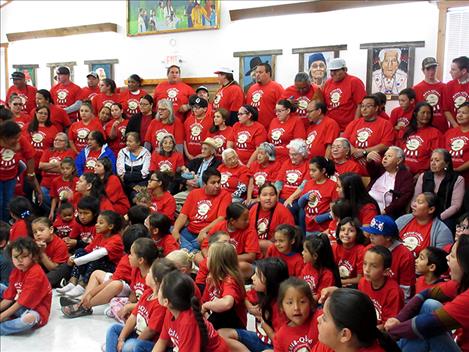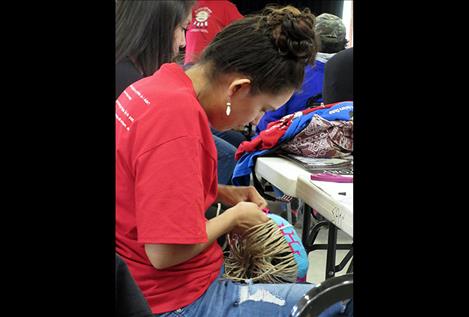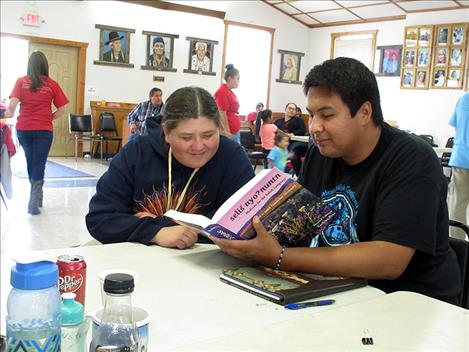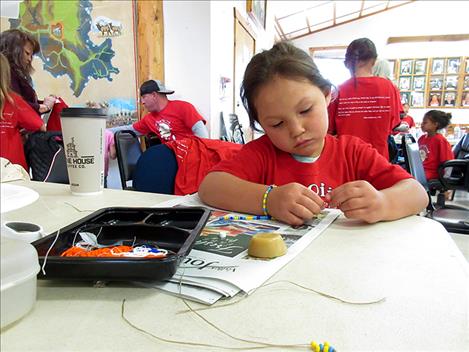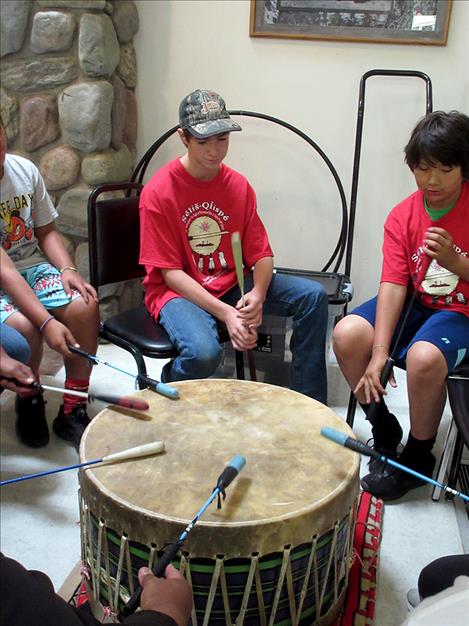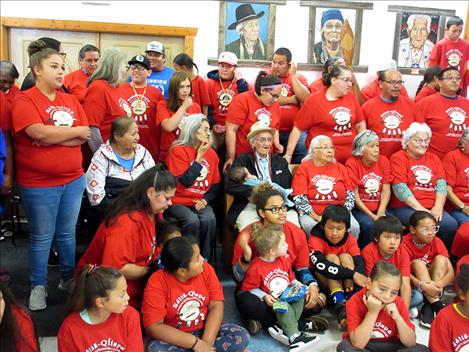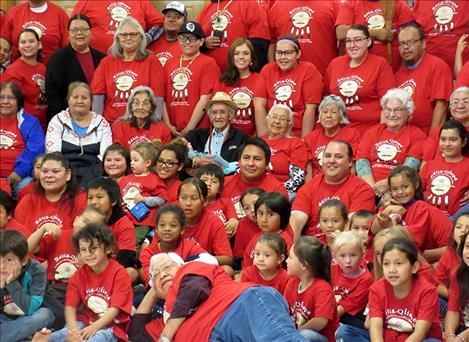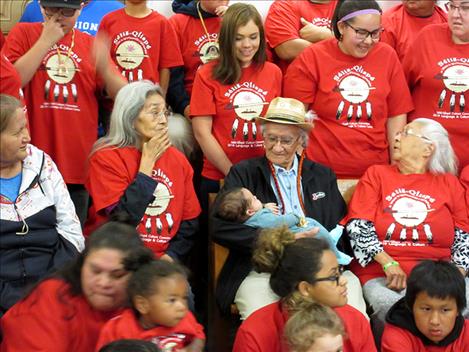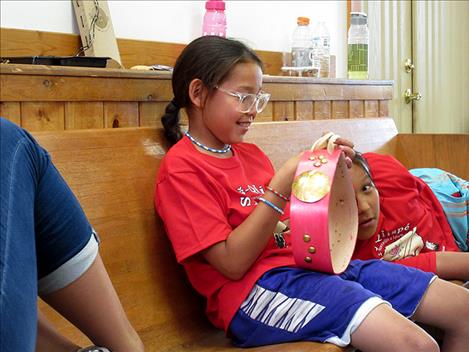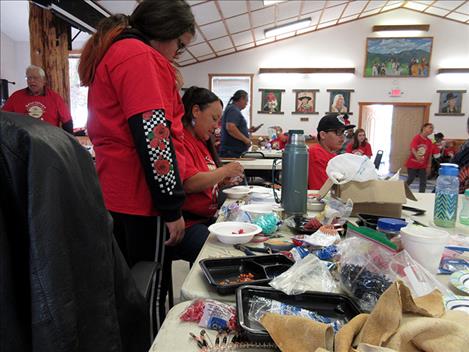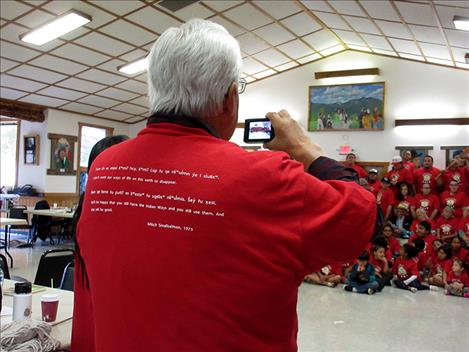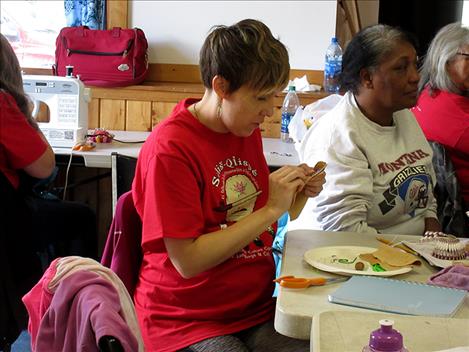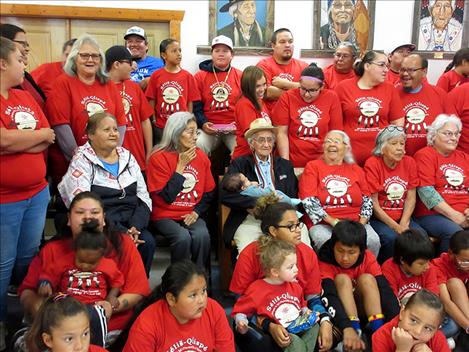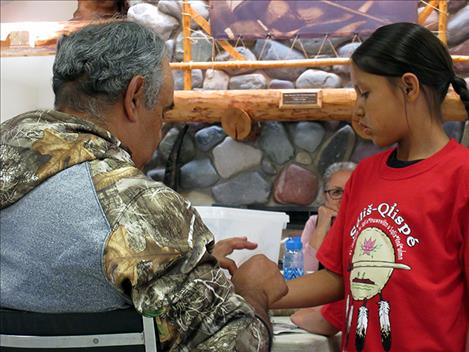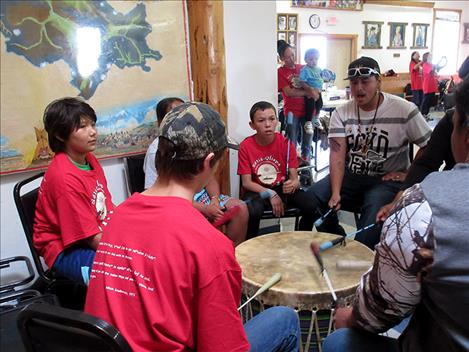Revitalizing tradition: annual Salish culture camp sees high turnout
Hey savvy news reader! Thanks for choosing local.
You are now reading
1 of 3 free articles.
ST. IGNATIUS – “That’s the biggest family picture,” an onlooker said as the attendees at the 2019 Salish Language and Culture Camp gathered for a group photo.
The last day of the weeklong day camp had the feeling of a family reunion. People of all ages gathered in small groups working on beading and visiting. The attendees wore matching T-shirts. One young attendee celebrated his birthday at the event, and the group sang him a birthday song in Salish.
Chaney Bell works for the Séliš-Qlispé Culture Committee and said the annual event serves to help Salish people connect with their culture. “Our language is being lost and our culture is not practiced as much. This is a chance to come together and keep connecting to the values and beliefs our ancestors had.”
The events took place at the Long House in St. Ignatius. During the day, the camp broke into an adult group and a children’s group. Children learned traditional games, studied basic language and worked with a specialist to build a traditional canoe. Adults studied more advanced language and crafts. Attendees made baskets, traditional dance belts, stick game sets and items out of leather and buckskin. Three meals were provided each day.
“We get to visit, eat, hang out, laugh, have fun and also learn things,” Bell said. He said about 150 people attended the camp each day, which was a larger turnout than last year.
The central focus of the camp is on language. Tony Incashola, director of the culture committee, said knowledge of language provides a foundation for the identity of Salish people. “If you know your language you know who you are, you know where you come from and you know what you need to do,” he said.
Incashola has been the director of the culture committee since 1995. He said the Salish community is increasingly interested in events like the culture camp. “There are many more young people stepping up and learning about the language and culture,” he said.
Incashola said in closing remarks at the camp that many attempts have been made throughout the years to “get rid” of his people, but values, stories and strength “passed down through the generations” have helped to create new leaders.
When he started on the culture committee in 1975, the committee was working to earn the trust of their elders. Now, the committee has compiled hundreds of hours of stories that form a history for the Salish people and a record of the language. That record is used to keep the culture alive.
Vance HomeGun said he attended the camp to do his part to pass on the Salish language and culture. “Elders say if we just learn a little thing then we can teach it and pass on that way.”
Incashola said he saw hope in the gathering. “I think about those elders that we started with and what they were worried about,” he told the group. “I think they’d be pretty happy to see you all here today.”















